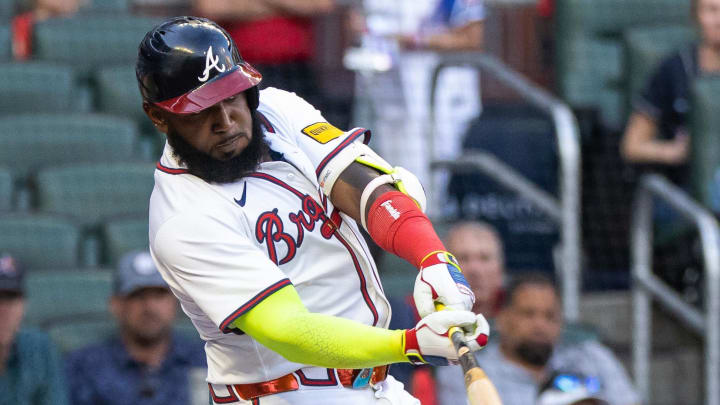Does WAR Reflect Who are the Atlanta Best Braves Players?

If one stat could be deemed weird in the era of analytics in baseball, it’s Wins Above Replacement (WAR). The idea having a single number that determines a players value compared to a replacement player has become a mainstream part of statistical dictions in the sport. We even have a base line for what career-aggregate WAR gets you in the Hall of Fame - that number is 70.
Many will look to this stat to decide who the top player in the league and on the teams they root for this season.
Here, we’ll look at if this single all-encompassing number really reflects who is the best player on the Atlanta Braves in 2024.
For this story, we’ll be using baseball reference WAR.
The WAR leader on the Atlanta Braves is starting pitcher Chris Sale (4.7). Sale has had the best season by a starter this year by far. When discussing who is the best in the rotation, that checks.
Meanwhile, you have Marcell Ozuna who has a 4.3 WAR. Despite being worth one less win than Sale, it can certainly be argued that Ozuna is the best player on the team this season.
But what’s weird to me about this statistic is there was a season where he was arguably worse and he had a better WAR. He had a 5.6 WAR with the Marlins in 2017, a number that would also be better than Sale’s this season.
He had a better WAR seven years ago despite having the same number of home runs he has now (37) but required 31 more games. Ozuna also has a better slash line all around compared to 2017. He has a slash line of .308/.379/.588/.968 this season vs a .312/.376/.548/.924 in 2017. Only his batting average was better and his power stats are much better now.
There is a potential argument that he doesn’t benefit from defensive WAR like he used to, but Ozuna has didn’t have a positive dWAR that year. His defense was such a hazard that he’s now a designated hitter.
The formulas for WAR are a bit of a secret, so it’s hard to say why it’s substantially different. But this difference will be an argument in favor of who is better.
Ozuna could win the MVP and Sale misses out on the Cy Young, but someone will still point to the stats to say, “actually.”
You know what, let’s circle back to who is the best pitcher in the conversation of who the best player is. Enter closer Raisel Iglesias. He has a 1.39 ERA and hasn’t given up an earned run in over two months. However, he only has a 2.5 WAR - half the player Sale is according to the stat. Or at least, much easier to replace than the starting pitcher.
But another stat, ERA+, which has a similar goal as WAR would say he is better than Sale. Iglesias has a 301 ERA+ while Sale’s a 160. Here, the closer is twice as valuable as the starter. After all, he appears in more games and gives up fewer runs.
Atlanta Braves Top WAR
1. Chris Sale - 4.7
2. Marcell Ozuna - 4.3
3. Reynaldo López - 4.2
4. Austin Riley - 2.8
5. Raisel Iglesias - 2.5
By the same logic, Ozuna has a 165 OPS+, the hitters version of the stat. So he is better as a hitter than Sale is as a pitcher.
So what gives?
Maybe the reality is WAR isn’t going to be able to determine who is the best player on the team, at least on its own.
WAR still makes a point, and should still be referenced, but its goal of being an be-all-end-all stat falls flat.
All names mentioned have a case for being the best player on the team, and none would really be an incorrect answer.
Keep using WAR for the conversation, but keep its of the reality that baseball never has and never will be a one-stat sport.
